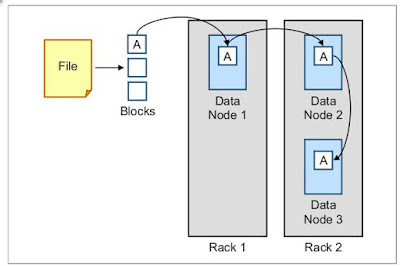SQL-on-Hadoop Tools Revolutionizing Big Data Analytics
Introduction:
Have you ever wondered how businesses manage to query and analyze massive datasets efficiently? According to a report by IDC, global data creation is projected to grow to 163 zettabytes by 2025. The sheer volume of data necessitates powerful tools for storage and analysis. SQL-on-Hadoop tools have emerged as game-changers, enabling organizations to leverage their existing SQL skills to query big data stored in Hadoop clusters. This article explores how SQL-on-Hadoop tools are transforming big data analytics, making it more accessible and efficient for businesses worldwide.
Body:
Section 1: Background and Context
Understanding SQL-on-Hadoop Tools
SQL-on-Hadoop tools bridge the gap between traditional SQL databases and modern big data platforms. They enable users to run SQL queries on data stored in Hadoop, combining the scalability of Hadoop with the familiarity of SQL. Popular SQL-on-Hadoop tools include Apache Hive, Apache Impala, and Presto, each offering unique capabilities for querying and analyzing large datasets.
Evolution of Data Management and Analytics
The evolution of data management has seen a shift from traditional SQL databases to distributed computing frameworks like Hadoop. While Hadoop excels at storing and processing large volumes of data, it initially lacked user-friendly querying capabilities. The development of SQL-on-Hadoop tools addressed this gap, allowing businesses to utilize their existing SQL knowledge to query big data efficiently.
Section 2: Highlight Key Points
Benefits of SQL-on-Hadoop Tools
Familiarity and Accessibility
One of the most significant advantages of SQL-on-Hadoop tools is their accessibility. Businesses can leverage their existing SQL skills to query and analyze big data, reducing the learning curve and accelerating adoption. This familiarity allows data analysts and developers to transition seamlessly to big data environments.
Scalability and Performance
SQL-on-Hadoop tools harness the scalability of Hadoop, enabling efficient querying of large datasets. Tools like Apache Impala and Presto offer high-performance query execution, allowing real-time analytics on massive data volumes. This scalability ensures that businesses can handle growing data demands without compromising performance.
Cost-Effectiveness
Utilizing SQL-on-Hadoop tools can be more cost-effective than traditional data warehouses, as they leverage the distributed storage and processing capabilities of Hadoop. Organizations can reduce infrastructure costs while maintaining the ability to perform complex queries and analytics.
Challenges and Considerations
Integration Complexity
Integrating SQL-on-Hadoop tools with existing systems can be complex and time-consuming. Organizations must invest in skilled personnel to manage the integration process and ensure seamless data flow across platforms. Additionally, the lack of standardized interfaces can pose challenges in achieving interoperability between different tools.
Performance Optimization
While SQL-on-Hadoop tools offer high performance, optimizing query execution can be challenging. Businesses must implement best practices for indexing, partitioning, and caching to ensure efficient query processing. Regular monitoring and tuning are essential to maintain optimal performance.
Security Concerns
Storing and querying large volumes of data in Hadoop clusters raises significant security concerns. Organizations must implement robust security measures, including encryption, access control, and regular audits, to protect sensitive data and prevent unauthorized access.
Section 3: Practical Tips and Examples
Implementing SQL-on-Hadoop Tools
Choosing the Right Tools
- Assess Business Needs: Identify your specific data management and analytics requirements to determine the most suitable SQL-on-Hadoop tools. Consider factors such as data volume, processing speed, and integration capabilities.
- Research Available Options: Conduct thorough research on available SQL-on-Hadoop tools, comparing their features, scalability, performance, and community support. Utilize reviews, case studies, and expert opinions to gather insights.
- Conduct Proof of Concept: Test the shortlisted tools by conducting a proof of concept (POC) to evaluate their performance, ease of integration, and scalability in your business environment.
Best Practices for Implementation
Data Ingestion and Integration
- Utilize ETL Tools: Employ ETL (Extract, Transform, Load) tools to streamline data ingestion and ensure data quality. Tools like Apache NiFi and Talend can automate data processing and integration.
- Establish Data Pipelines: Create efficient data pipelines to manage data flow from various sources to the platform. Ensure pipelines are scalable and resilient to handle increasing data volumes.
Query Optimization Techniques
- Indexing and Partitioning: Implement indexing and partitioning strategies to enhance query performance. These techniques can significantly reduce query execution time by organizing data efficiently.
- Caching and Materialized Views: Utilize caching and materialized views to store frequently accessed query results, reducing the need for repeated data processing and speeding up query execution.
- Regular Monitoring: Implement monitoring tools to track query performance and identify bottlenecks. Tools like Grafana, Prometheus, and ELK Stack (Elasticsearch, Logstash, Kibana) can provide real-time insights into query metrics.
Case Studies and Success Stories
Case Study: E-commerce Industry
An e-commerce company implemented Apache Hive and Impala to manage and query vast amounts of customer data. By leveraging SQL-on-Hadoop tools, the company improved customer segmentation and personalized marketing, resulting in a 30% increase in sales.
Case Study: Financial Services
A financial services provider utilized Presto to query and analyze transaction data from various sources. Presto's high-performance query execution enabled real-time fraud detection and risk management, reducing fraudulent activities by 25%.
Leveraging Analytics and Machine Learning
- Integrate Analytics Tools: Utilize analytics tools like Apache Spark and machine learning frameworks to derive insights from your data. These tools can process large datasets and perform complex queries, enabling advanced analytics and predictive modeling.
- Implement Real-Time Analytics: Leverage real-time analytics capabilities to gain immediate insights and make data-driven decisions. Platforms like Apache Kafka and Spark Streaming can support real-time data processing.
Conclusion:
SQL-on-Hadoop tools are revolutionizing big data analytics by bridging the gap between traditional SQL databases and modern big data platforms. Their familiarity, scalability, and cost-effectiveness make them invaluable for businesses looking to harness the power of big data. While challenges like integration complexity and security concerns persist, implementing best practices and leveraging community support can help organizations maximize the benefits of SQL-on-Hadoop tools. By choosing the right tools and optimizing their use, businesses can transform their data analytics capabilities, driving innovation and competitive advantage.




Comments
Post a Comment